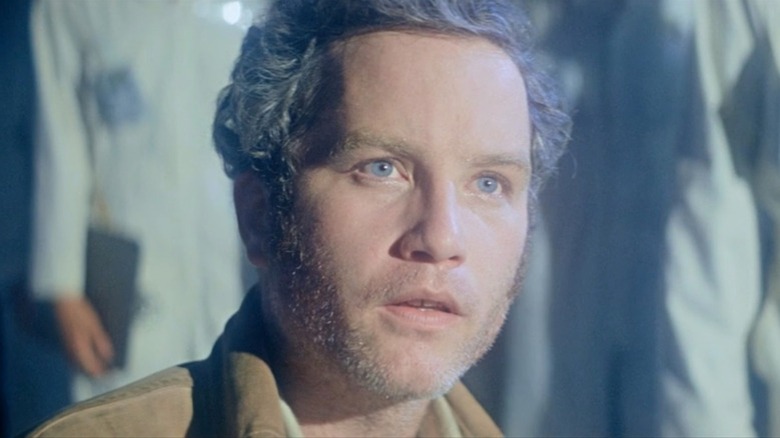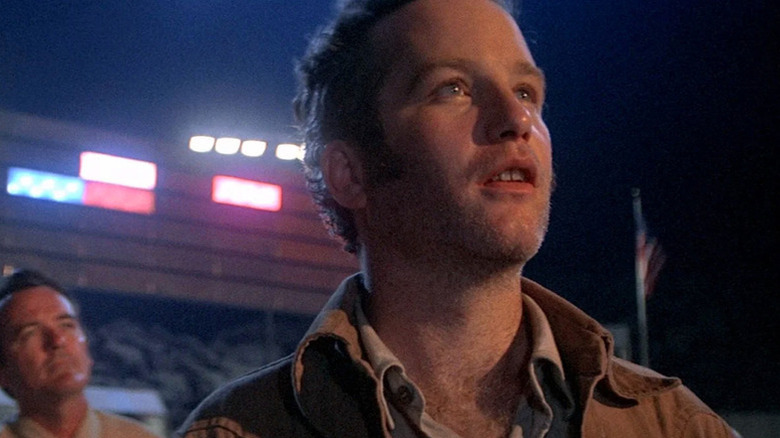How The Ku Klux Klan Interfered With Steven Spielberg's Close Encounters Of The Third Kind
When Steven Spielberg began pre-production on "Close Encounters of the Third Kind," he was determined to avoid the myriad production difficulties he encountered during "Jaws." Though the science fiction epic would be a location-heavy shoot, at least he'd be spared the logistical nightmare of filming on open water, which proved so perilous that he was nearly fired. Having survived that production to make what was then the highest-grossing movie of all time, his follow-up film was a risk well worth taking. Columbia Pictures earned the honor of rolling the dice, and it paid handsomely for the pleasure.
"Close Encounters of the Third Kind" wound up being a blockbuster masterpiece, but Spielberg's phenomenally fertile imagination sent the film sailing way over-schedule and over-budget. What was supposed to cost $2.7 million came in at $19.4 million. And while Spielberg was indulging his every artistic whim, his producer, Julia Phillips, and star, Richard Dreyfuss, were in the throes of career-threatening cocaine addictions.
Dreyfuss possesses a restless mind. He is smart, well-read, and an unabashed liberal who's committed to humanitarian causes (or, rather, he was when he was younger, in contrast to the sexist and transphobic comments he made during a Q&A at a special 2024 screening of "Jaws"). He can be exhausting, but, given his bipolar disorder diagnosis, this is not his fault. And while he can be disruptive on set, he's typically worth the headache since he rarely gives a bad performance.
One headache Dreyfuss induced during the shoot of "Close Encounters of the Third Kind" is actually admirable. While shooting in Alabama, he gave an interview with a local newspaper wherein he lambasted the Ku Klux Klan. This earned him an unexpected two-week break when one of the white supremacist organization's buffoonish members threatened to kill him.
The Klan chased Richard Dreyfuss out of Alabama
According to contemporaneous reports from Time Magazine and Esquire, Dreyfuss was forced to flee the Mobile, Alabama set of "Close Encounters of the Third Kind" for two weeks after receiving a death threat for having the temerity to criticize the virulently racist KKK. This piece is not findable online, but you can't go too far in trash-talking the Klan. They're a bunch of ignorant, hayseed, hooded bigots who lynched countless people of color during the Reconstruction era of the United States and beyond. Good on Dreyfuss for making the right enemies.
Dreyfuss would eventually conquer his cocaine addiction and roar back from a career slump in 1986 with a sublimely silly performance in Paul Mazursky's "Down and Out in Beverly Hills." He was once again an A-list movie star, dazzling in films like "Tin Men," "Stakeout" and "Let It Ride," and reuniting with Spielberg for the sentimental misfire "Always" (a remake of Victor Fleming's "A Guy Named Joe"). So, let this be a lesson: Calling out racists is not bad for your career.

